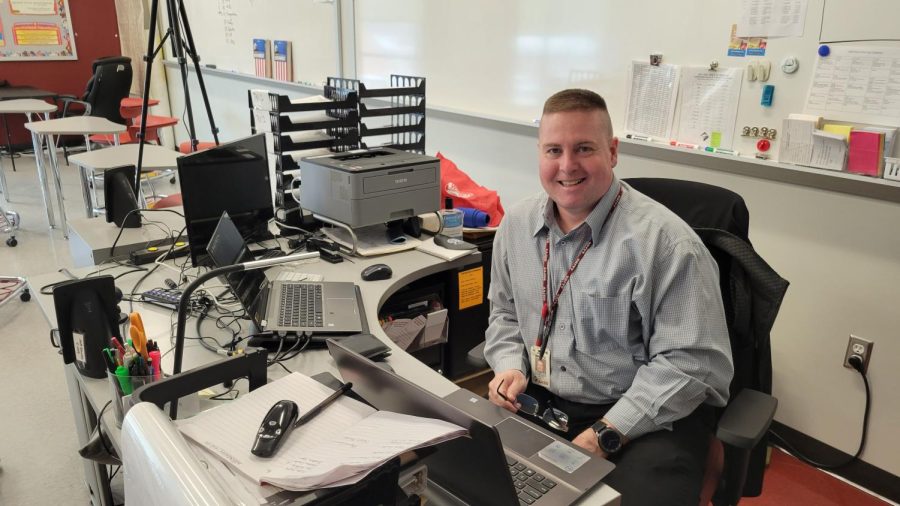Jeffery Shultz
Name
Jeffery Shultz
What was your highest rank?
Lieutenant Colonel
Which branch were you in?
Army Reserves
What Military Occupation Specialty did you have?
I’m an Infantry Officer; I’ve been an infantry guy my whole career
Why did you choose that branch?
Circumstances dictated. I was looking for college money actually and who was offering the best deal on college money. I thought I would do my six years and get out. That was 30 years ago.
How long ago did you serve?
January 1992
How did you end up becoming a teacher after serving? Was that your initial plan after serving or did it change?
You know, I didn’t actually. My original bachelor’s degree was in political science. I thought I wanted to go to law school, but I realized that back in those days, if you didn’t have a lot of money, you couldn’t afford to go to law school. So I went back and got my teaching certification after a hiatus in another job.
Is there anything you remember about your time in the service?
Yeah, a lot of things. As the old saying goes, ‘you remember the people, you enjoy and miss the people you serve with, but you don’t miss the ridiculousness.’ There’s always good and bad, I’ve had some great opportunities, things I would never have been able to do had I not served. It’s a privilege to serve some of the greatest you can think of. I deployed to Kosovo and was company commander and worked on some division staff levels as the deputy chief of plans. In Korea, I worked for a four-star general there. Did some good things in Spain, for exercise Trident Juncture, a big NATO exercise back in 2015, and now my job is to oversee people who influence the next generation of leaders. We teach the Command and General Staff Officer Corp, which is the second highest school in the military behind the Army War College.
Where are some of the places you’ve been?
I’ve been to Kosovo, Korea, Japan for a short stint and Spain for a month. Obviously a lot of different military installations around the United States. Probably spent the most of my time at Fort Benning because that’s the home of the infantry. Just a lot of good experiences, a lot of good training, lot of leadership experiences
What does being in the military mean to you?
Service of your nation, doing the right thing if you’re capable. I think doing it is an important thing because freedom is not free. It’s a great way of life; it has offered a lot of experiences that I could have never had as a young guy from Altoona with not a lot of money or family influence. I think it offers something for everybody, but it’s not everybody’s cup of tea. It’s not what everybody is cut out to do.
Any tips for students going into basic training?
My first tip would be don’t be like me and just look for the easiest route for college money. It luckily worked out for me. I like what I do, and I enjoy being an Infantry Officer and a leader at what I do. But what I would say is look at what gives you the best opportunity to do what you’re going to be happy doing, something that coincides with your likes and dislikes, and something that you would maybe potentially want to do for a longer term career. You might get a skill in the military that you could apply to the outside world. Even if it isn’t something high level, it could be a nice, technology type thing. There’s a lot of technology going on in the military. The cyber command is a major command being set up now. It could be a skill set, you could learn, in some of the services, how to become a plumber or an electrician. I would say A, look at what you want to do, and what conforms to your likes and maybe what you want to do in the future. And B, which service is more conducive to your lifestyle. If you don’t like getting dirty and running around the woods, the army is not your thing. If you don’t like being out on the water, I wouldn’t join the navy. And another part is, learn as much as you can about basic training. There are certain things that you’re going to be required to understand and do, and the more you know about it going in, the less pain you’ll feel while you’re there, so you can circumvent some of the traps and pitfalls. And most of the recruiters will give you upfront stuff, but if you have a relative or friend or somebody that’s in that service, maybe you talk to them, and see what you need to do to be successful. The bottom line is: do what you’re told, and do it as fast as you can.
